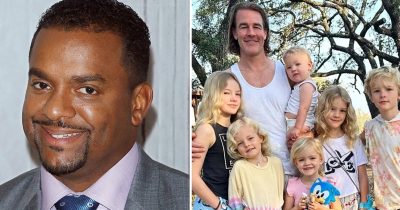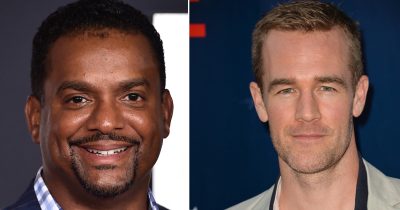
Know as “Mr Show Business” and “the greatest entertainer ever to grace a stage in these United States” -– Sammy Davis Jr. is a dearly missed superstar who forever carved himself into American history.
I enjoyed Sammy Davis Jr. tremendously,; he was an incredible musician and actor, one of the most talented performers ever.
But his life story is also a tale about the extraordinary obstacles he faced, including deep-rooted racism, secret love affairs, and a mysterious confession on his deathbed.

Sammy Davis Jr. was born in Harlem, New York on a chilly December day in 1925. He came into this world with music and entertainment in his blood – there was never any doubt which path Davis would take in life.
His father was the African-American entertainer and vaudeville performer Sammy Davis Sr. His mother, Elvera Sanchez, also made a living as a vaudeville dancer.
Unfortunately, his parents divorced when Sammy Davis Jr. was only three years old. But that decision didn’t turn out all that bad for the young boy; Davis’ father didn’t want to lose custody of his son, so Davis Sr. took his son on tour.

Sammy Davis Jr. was very young when he debuted as “Baby Sammy” and started performing with his father and his ‘uncle’ Will Mastin. The audience loved the talented 3-year-old, and he soon, along with his dad and uncle, became part of the popular Will Mastin Trio.
His father and uncle made sure to protect little Sammy from the racism during this time of segregation in America. Such mindless hate would be a recurring theme throughout Sammy’s life – but when he was a child, he couldn’t possibly have fathomed how bad things were.
As a young boy, his career rolled on at high speed. He landed his first film role at the age of eight when he starred in “Rufus Jones for President”, released in 1933. He spent his early life on the road – remember this was an era where there wasn’t that big of a debate around child labor or whether children should go to school.

Davis received all his education on stage and by his teens he was a fully-fledged musician, entertainer, comedian, and dancer. Davis’ father sometimes tried to hire teachers to provide his son with some form of education, but when Davis was touring with the Will Mastin Trio, there was little time to sit at a school desk.
Sammy Davis Jr. didn’t go to pre-school and he never attended college – instead, he was drafted into the U.S. Army as an 18-year-old.
In 1943, World War II raged on and Davis served in the Army’s Special Services branch, providing entertainment for the troops.
Racists broke his nose
However, his time in the Army turned into a minor hell for Davis, who was ridiculed and abused by many white soldiers from the South. Some attacked him, both physically and mentally.
”Overnight the world looked different. It wasn’t one color anymore. I could see the protection I’d gotten all my life from my father and Will. I appreciated their loving hope that I’d never need to know about prejudice and hate, but they were wrong. It was as if I’d walked through a swinging door for 18 years, a door which they had always secretly held open,” Davis said according to the book Sammy: An Autobiography: with Material Newly Revised from Yes I Can and Why Me?.
In the army, Sammy was beaten several times, painted white, and he got his nose broken so bad that it was permanently damaged. Later, Davis was forced to perform and entertain the soldiers who had previously abused him.
Still, Davis kept his pride and did his best to keep the troops happy and relaxed. But he got a rude awakening concerning the open racism and discrimination – both in the army and society in general. He then decided to strive for change, and always came back to ”Sergeant Williams”, a person in the army who taught him how to use his talent to fight racial ignorance.

“My talent was the weapon, the power, the way for me to fight. It was the one way I might hope to affect a man’s thinking,” Davis later said.
He was discharged in 1945 and returned to the entertainment industry and his beloved Will Mastin Trio. Davis also tried his hand at a solo career, but it was in 1947 that the big turnaround would come for the then-22-year-old.
The Will Mastin Trio got to open for Frank Sinatra at the Capitol Theater in New York, and that changed everything for Davis.

Frank ”Ol’ Blue Eyes” Sinatra and Sammy clicked right away – the famous singer was frankly blown away by Sammy’s talent. The duo would become lifelong friends and Sinatra always had Davis’ back, which was vital given that he was constantly exposed to racism.
There are several examples of Frank Sinatra standing up to racism and the discrimination that Davis was facing as a black entertainer in a whitewashed world.
When Davis was turned down or couldn’t sleep at the same hotel as his friend and colleague, Frank would become furious and often stood up for Sammy.

He would even tear up his own contracts with any theater that didn’t want Davis on stage because of his skin color. And remember, this was during Sinatra’s early days, when he was still relatively unknown and needed all the gigs he could get.
“With all the racial tension I endured, I never turned around and hated right back,” Davis later told his daughter.
“There was always some white guy like Sergeant Williams or Frank Sinatra, who helped me back up.”
Without the support from a man who became the most popular white singer in the country, it’s not impossible to imagine that Sammy’s career could have looked very different.
Sammy Davis car crash
“Sinatra, first of all, was never a racist kind of guy. He cared about everybody being equal. When Frank said, ‘This guy’s great,” they all paid attention,” Sammy’s daughter explained in her book about her father.
In the early 1950s, Davis got the chance with the record company Decca Records and went to Los Angeles to record an album.
The time in Los Angeles would change Davis’ life forever – and not in a positive way. It was in California, on his way home from Las Vegas to Los Angeles, that he nearly lost his life in a serious car accident.
Davis lost one eye in the accident and was forced to wear an eye patch for quite some time after. Later, Davis got a glass eye.

But again, Davis managed to put a positive spin on the tragedy.
The accident made him think about life and he soon discovered Judaism. Davis felt that the situation of the Jews was very similar to that of African Americans, and by 1961 he had converted to Judaism.
Thankfully, Davis recovered from the car crash, and in 1956 he got his breakthrough on Broadway. A few years late maybe – since Davis had been touring since the 1920s – but he experienced huge success in the musical ”Mr Wonderful”– written specifically to manifest the talents of Davis.
One could easily argue that Sammy Davis Jr. was at the peak of his career in the late 1950s. He became a member of the famous Rat Pack, a club of entertainers led by Frank Sinatra.

The gang did shows and movies together – but the group was also known for their wild parties and extravagant habits.
Romance with Kim Novak
During this time, Davis fell in love with the beautiful, blue-eyed blonde Kim Novak. At this time, Novak’s career was at its peak and she was a famous face in Hollywood after her role in Alfred Hitchcock’s “Vertigo”.

The couple first laid eyes on each other at the famous The Chez Paree, in Chicago. Then they met again, the same evening, at an after-party hosted by legendary actor Tony Curtis. Davis had told Curtis that he really wanted to meet Kim Novak, and had invited her to sit ringside when he performed at Chez Paree.
But Davis never got the chance to talk to the famous actress – he didn’t want to create a scene at Chez Paree and so took a step back.

“He didn’t want to create problems,” Curtis told Vanity Fair in 1999.
”So I said, ‘I’m going to have a party at my house. Come on by, and I’ll invite Kim.’ They both came over and they spent the evening together—deep in thought, deep in talk. I could see right from the beginning that they were getting along in an intense way, and that was the beginning of the relationship.”
Davis and Novak fell in love immediately and became inseparable.

Novak had been interested in Davis for a long time – he had a sort of magnetism and was able to charm everyone with his charisma. Many men considered Davis ugly, but women loved his expression on stage, and Novak felt an incredible attraction.
Sadly, it didn’t take long before the gossip magazines heard about the scandalous romance. Someone at Tony Curtis’ party had apparently tipped off columnist Dorothy Kilgallen, who realized the explosive nature of the information.
She immediately began writing about the controversial love affair. She published the following question in her gossip column: “Which top female movie star (K.N.) is seriously dating which big-name entertainer (S.D.)?” Two days later, she wrote: “Studio bosses now know about K.N.’s affair with S.D. and have turned lavender over their platinum blonde.”

At this time, interracial relationships were not widely accepted, and even illegal in some states. Davis immediately called Kim to apologize – he swore he hadn’t said a word to the journalists about their love affair.
Kim believed him and invited Davis home for dinner – the couple ate spaghetti and everything was fine for a while.
However, Novak’s boss, Harry Cohn at Columbia Pictures, was not so pleased. In fact, he was furious that she was dating a black man. He thought that it could ruin her whole career, as well as jeopardize the company’s revenue.

Journalist Irv Kupcinet said in 1999 that emotions were high when Harry Cohn read about the romance in the Chicago Sun-Times. The newspaper claimed that Davis and Novak had taken out a marriage license – rumors insisted the controversial couple planned to tie the knot.
“It caused a hell of a ruckus at the studio when Harry Cohn picked up my column and learned that his star was about to be destroyed,” Kupcinet recalled in 1999.
“In that era, Cohn thought, Who’s going to go see a movie star who’s married to a black man? Cohn blew his top. He got so mad at me and at the story and at her. He called me and used a few vituperative terms. I said, ‘Harry, we’ve been friends for a long time. But I have to print what I think is news.’

Cohn forbade Novak from meeting Davis, but it was no use. The couple continued to see each other in secret – sometimes Davis would hide under a pile of sheets to avoid the paparazzi’s curious eyes.
Harry Cohn’s frustration only grew – he reportedly even ordered guards to Novak’s house to keep Davis away.
In the end, it went so far that Cohn contacted the mafia, who in turn threatened Davis. Suddenly, things escalated to the point where the Mob announced that if Davis didn’t marry an African-American woman within 48 hours, nasty things would happen.
The Mob threatened to break Davis’ legs and stick out his only working eye, according to the 2014 BBC Documentary “The Kid in the middle”.

Sammy was, naturally, in a hurry. He called his friend, singer Loray White, directly. They had dated sporadically before, and Davis offered her $10,000 to marry him. Hours later, the couple tied the knot at the Sands Hotel, only to divorce not long after – something that Davis had included in the deal.
After that, Novak and Davis went on with their lives.
“That DID happen. [Cohn was] surrounded by all these men, including people in the Mob. He told me that my career was in jeopardy if I continued to see Sammy… it was very disturbing, but we knew there was no use fighting it,” Novak later confirmed.
Had one daughter
But the couple would be reunited one last time. When Sammy Davis Jr. lay on his deathbed, Novak visited her old lover. After many years apart, the old couple were able to say a final goodbye to one another.
Overall, Sammy Davis Jr. wasn’t that lucky with women. Neither, though, was he really a family man, according to his only daughter.
Due to his height and broken nose, he was often discredited as ugly. But all the same, Sammy had a charisma and charm that really made women fall for him, something that only made a lot of his detractors all the more bitter.

Still, Davis was married three times and had a daughter, Tracey, together with Swedish-born actress May Britt.
The interracial marriage to Britt was also taboo, mind, and Davis received many hate letters from people who did not think it was appropriate for a black man to marry a white woman.
Throughout his career, of course, there were many rumors about Davis and it is always difficult to know what is truth and what is hearsay.

One rumor that still persists to this day is that President Kennedy refused to let Sammy Davis Jr. play at his inauguration. Davis, who was a devoted Democrat and supported Kennedy in the 1960 election campaign, was initially scheduled to perform, only to be denied on account of his marriage to Britt, according to daughter Tracey’s book from 2014.

It was JFK’s father who didn’t approve of Sammy’s interracial marriage and thought it would ruin the ball, longtime friend Arthur Silber confirmed to Desert Sun in 2015.
In 2014, Tracey released a book about her father where many things were revealed or confirmed, including the ”incident” with JFK. The book is based on conversations she had with her father and gives a good insight into his life and thoughts.
“He wanted me to keep it going. He wanted people to know his music and what he stood for and what he did and what kind of person he was. And I think he knew intuitively that I was the one to do it,” she later told CBC.
As stated, Tracey was Davis’ only biological child, but the famous singer actually had three adopted sons as well, something not everyone knows.
Sammy Davis Jr.’s last words
A few years ago, one of said adopted sons, Mark, suspected that he was in fact Davis’ biological son. Mark had found his birth certificate in 2013 where it said that Davis was named his father. He also remembered the last conversation he had with his father on the deathbed.
”’You are my son’ were his last words to me and I have from that day wondered what he meant,” Mark told Daily Mail.
Tracey didn’t believe this at all and was absolutely certain that she was Davis and May Britt’s only biological child. After a period of great confusion, Mark finally did a DNA test which proved that he wasn’t Davis’ biological son.
In 1989, Sammy Davis Jr. was diagnosed with throat cancer. For much of his career, he drank and smoked a lot – things that likely contributed to the sickness. Davis refused to have surgery on his throat, receiving chemotherapy instead. He wanted to keep his voice intact – a voice that touched people up until the very last moments of his life.

Author Burt Boyer told Vanity Fair:
“It was stunning. Here’s a man dying of throat cancer, and his voice was glorious, like a nightingale. It was almost unreal.
“Not only was he born with talent and the voice of an angel, but he also died with it too.”
Unfortunately, Sammy Davis Jr. died from his cancer on May 16, 1990, aged just 64. He was hailed by thousands of people around the world – 2,500 people attended his funeral alone.
Davis was subsequently awarded the Grammy Lifetime Achievement Award in 2001. When the news of his death became known, the city of Las Vegas turned off all the neon lights on its strip to honor his memory.

So many people loved this man for so many reasons. He was wonderful at anything he did.?
An amazing talent and gone way too soon! Share this article if you agree!




